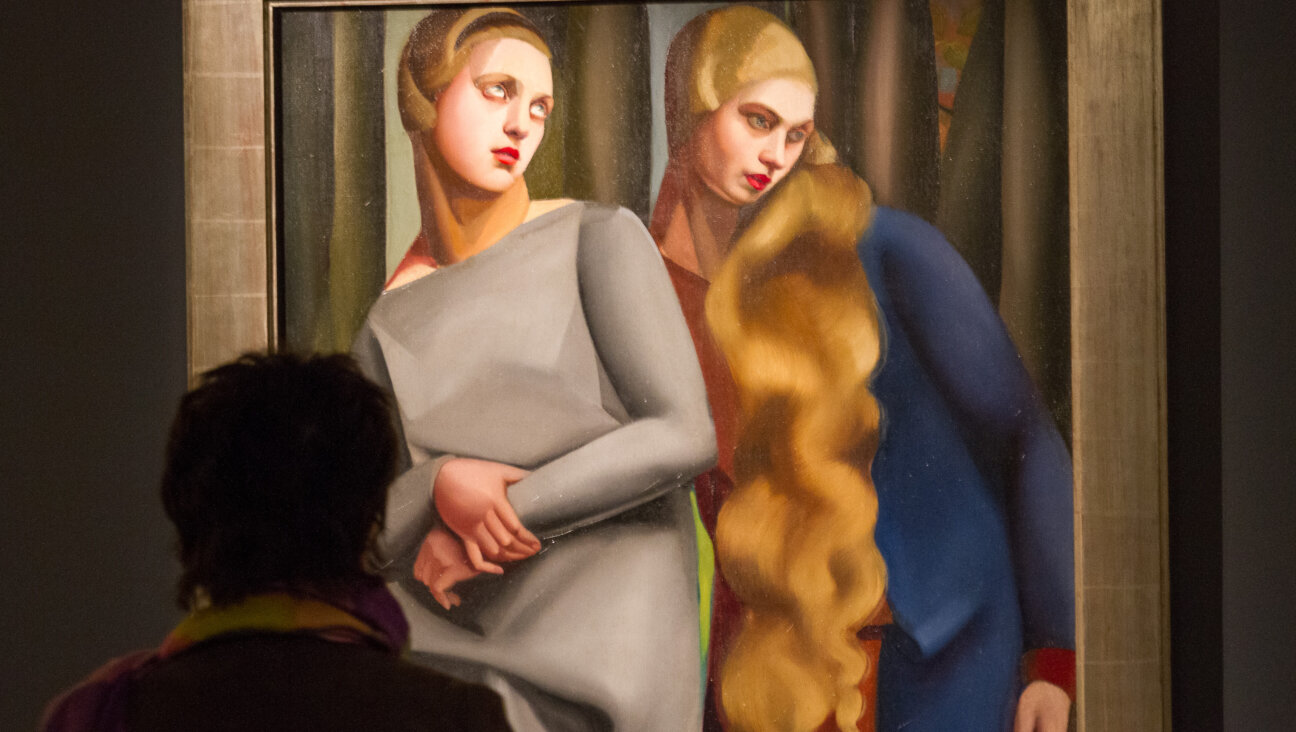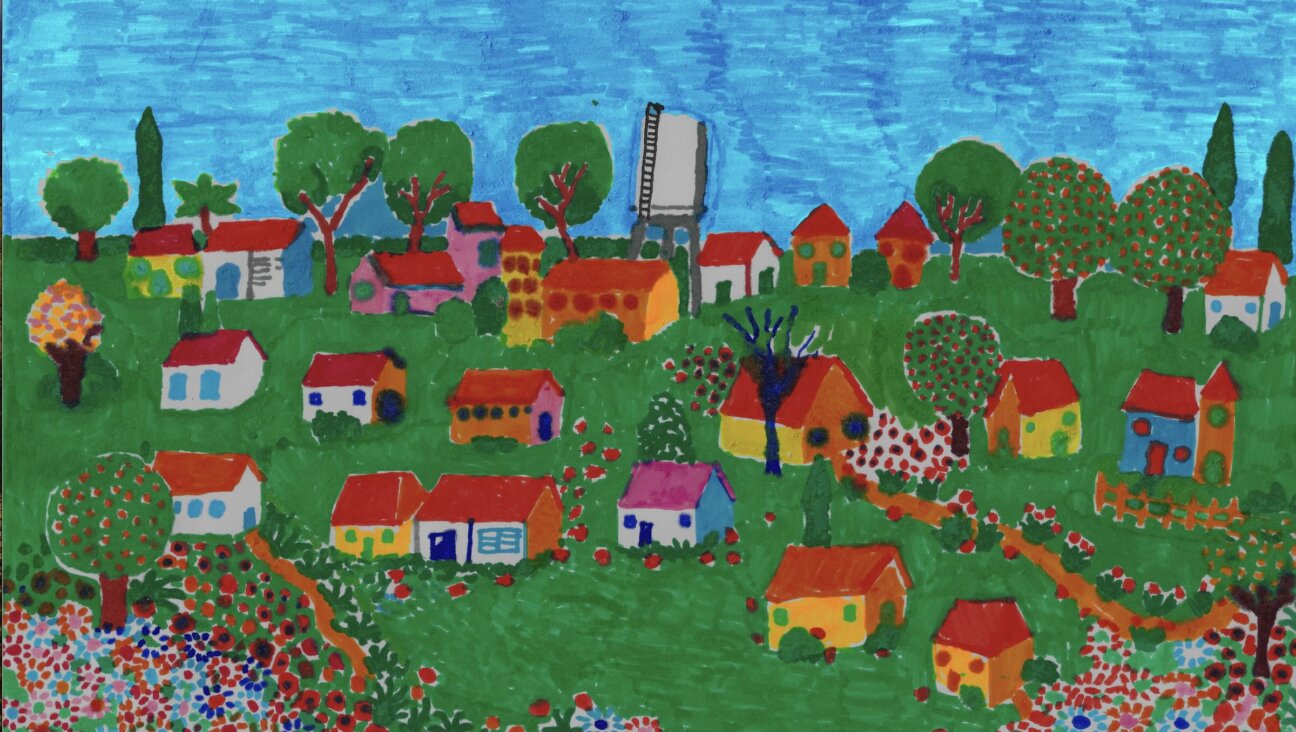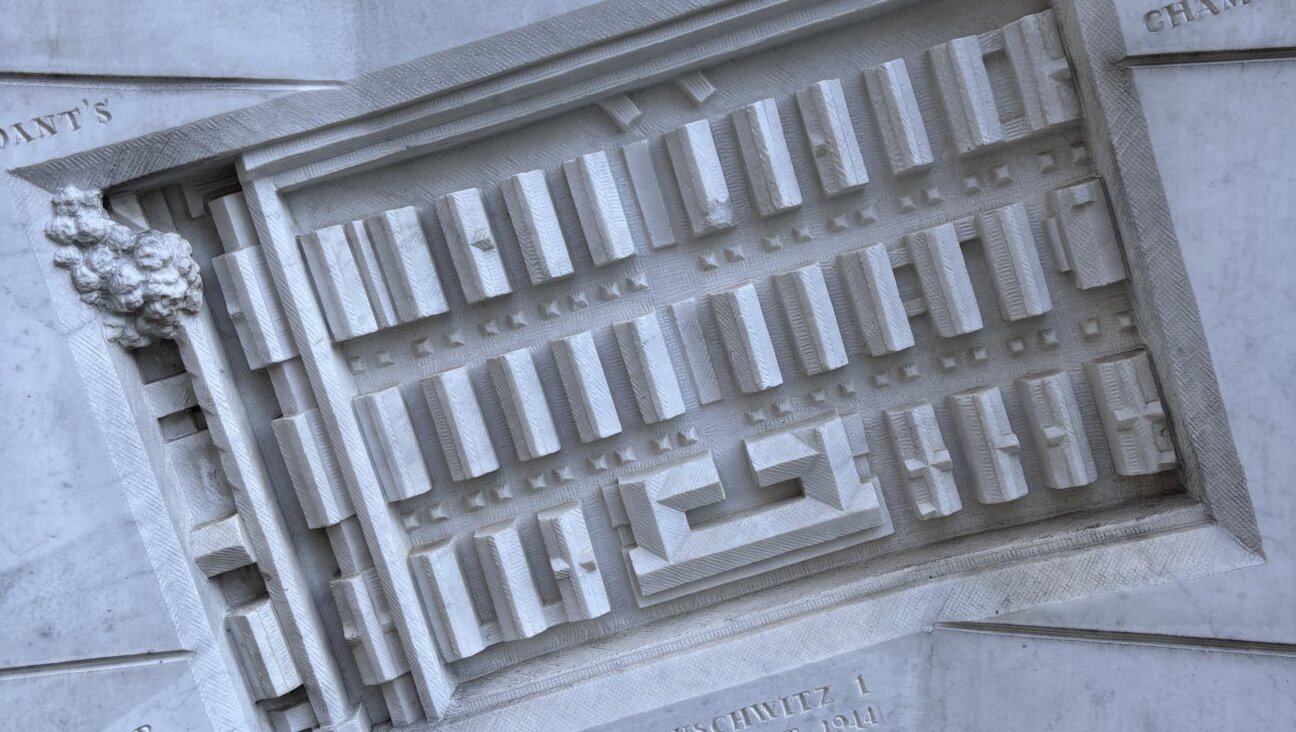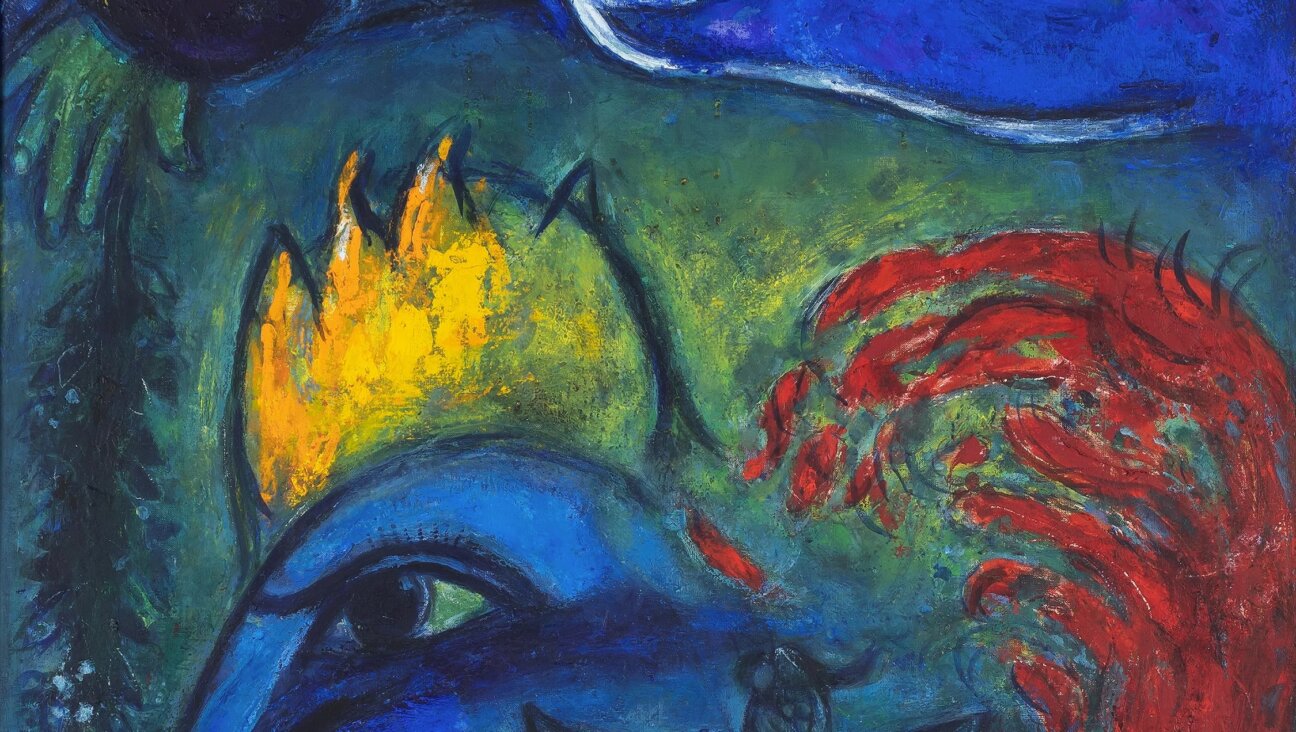New Center For Jewish History Head David Myers Shares His Vision For The Future

Center For Jewish History Image by Wikimedia Commons
The Center for Jewish History has announced that its new President and Chief Executive Officer will be David N. Myers, the Sady and Ludwig Kahn Professor of Jewish History in the UCLA History Department, where he has taught for the past 25 years. Myers is also the author of such books as “Re-inventing the Jewish Past “(Oxford, 1995), “Resisting History: The Crisis of Historicism in German-Jewish Thought” (Princeton, 2003) and “Jewish History: A Very Short Introduction” (Oxford, 2017). Joel J. Levy, the current President and CEO will be stepping down but will remain as a consultant for CJH.
The Forward’s Talya Zax spoke with David Myers about his vision for the future of the Center for Jewish History. Their conversation has been edited for brevity and clarity.

David N. Myers, the new president and CEO of the Center For Jewish History. Image by Scarlett Freund
Talya Zax: Tell me about your vision for the Center for Jewish History.
David Myers: The Center comprises five partner organizations, each of which is a distinguished entity in its own right. The first question is why consider doing this in the first place, and the answer is simple: I’m a Jewish historian, and this is the Center for Jewish History. It’s a place that’s been an extraordinarily viable resource for me in my own research. What I really love about it is that through the partner organizations it represents a sweeping, what I would call catholic [rather than parochial], universal, sweeping view of Jewish history. With the treasures in the collections that it possesses, located in New York City, I think it’s poised to become a major player in Jewish cultural life in New York, and to continue to build on its reputation in the field of Jewish history. The next horizon that we have to try to make our way to is of course the digital horizon, and, with the extraordinary resources of the Center, serving multiple circles of audiences. The first is the circle of scholars who come to use the Center’s resources, the second is the circle who come to the Center for genealogical research, the third is the general public of the New York area, and the fourth is an audience well beyond New York City that we hope will have access to the resources of the collection.
How, so far as you can currently say, do you plan to do that?
Well, [through] the ongoing process of digitization of our materials, which is as you may know an extremely slow, labor-intensive and costly process. The partner members have had these wonderful collections, and we all want to make those materials accessible to ever-wider audiences. Digitization is the ongoing major challenge of the 21st century for this institution and others. I’d like to find ways to expand our reach through online courses, I’d love to see a new online course introducing the audience to Jewish history writ large, that draws on some of the actual documentary sources in the scholarly collections, and that would be a course that would be open and accessible to anyone. That’s the kind of thing that you can do with the riches of the Center and partner collections. It can really create an extraordinarily interactive course or series of courses that bring the Jewish historical experience to you.
As CJH oversees five organizations, what are the greatest challenges you anticipate in your new position? Are there things you’d like to change about how those five organizations interact with each other?
The challenge you allude to is an intriguing one. I guess I imagine my task is akin to a conductor in an orchestra with world-class musicians. How do you bring out of the discreet sounds a greater whole? How do you create something that is greater than the sum of its parts? I don’t think it’s impossible; there are institutions like Lincoln Center, which is made up of a dozen or so world class independent units like the Metropolitan Opera and the City Ballet, but nonetheless succeeds in creating through its physical space something greater than the sum of its parts. We don’t imagine ourselves on the scale of Lincoln Center, but I think it’s a good model to think through. I was trained by a great generalist in Jewish history, professor Yosef Hayim Yerushalmi, who insisted we be familiar with all periods of Jewish history, and that’s the vision I bring to the Center, a variation of the theme articulated by Franz Rosenzweig when he said nothing Jewish should be foreign to us. I say nothing Jewish-historical should be foreign to the Center.
We should be thinking a lot of shared programs, including a joint exhibition that rotates from time to time that draws upon the riches of the partner collections. I think we need to expose to the public more and more what is contained in that building, because there are treasures of Jewish history. We can’t be a well-kept secret anymore.
You come from a scholarly background, and will remain on the faculty at UCLA during your tenure with CJH. Do you anticipate undertaking new research while at CJH? If so, what can you tell me about it?
A propos of my catholic view of Jewish history, I just came out with a book in Oxford University Press’s series on Jewish History in 100 brief pages. I like that kind of challenge of distilling the essence, because I think we want historical knowledge to be digestible and accessible. I have used and will be continuing to use the Center’s collections, particularly that of YIVO, for a long-term research project I’ve been involved with on the history of Kiryas Joel, New York, which is a community made up almost entirely of Satmar Hasidim, that’s a legally recognized municipality.
Can you offer some thoughts on the departure of your predecessor, Joel Levy?
I’m really thrilled that Joel has agreed to stay on as a consultant. He’s been a really gracious and enormously helpful guide to me in the last month or so as I’ve come to take on this position, and he’s been an effective steward of the Center over the last few years or so. He’s a person of great intelligence, integrity and competence.
At a time when hate crimes, including anti-Semitic hate crimes, are on the rise, and political forces like populism and nationalism are resurgent, many Jewish organizations are rethinking how they engage with the world around them. Do you anticipate doing the same at CJH? If so, in what ways? What do you think the pros and cons might be of doing so?
My response to that question is that these phenomena that you’ve talked about, these very alarming phenomena, I think call out for renewed attention to history. Part of what I have been attempting to do over the last 15 years or so at UCLA is bring history into conversation with the present, to bring historical perspective to bear on crucial issues of the day. We want to have a robust and refined sense of history in thinking about the present and the future. It’s not that there are neatly packaged lessons that the past offers us, but the past offers us nuance, texture, as well as an appreciation for recurrent patterns, that really helps us navigate the present and the future. Never has a time been more important for institutions devoted to historical perspective than now.
A message from our Publisher & CEO Rachel Fishman Feddersen

I hope you appreciated this article. Before you go, I’d like to ask you to please support the Forward’s award-winning, nonprofit journalism so that we can be prepared for whatever news 2025 brings.
At a time when other newsrooms are closing or cutting back, the Forward has removed its paywall and invested additional resources to report on the ground from Israel and around the U.S. on the impact of the war, rising antisemitism and polarized discourse.
Readers like you make it all possible. Support our work by becoming a Forward Member and connect with our journalism and your community.
— Rachel Fishman Feddersen, Publisher and CEO
























